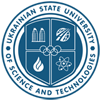Bibliometric Analysis of the Development of the Direction "Dredging" in World Practice
DOI:
https://doi.org/10.15802/unilib/2019_186781Keywords:
bibliometry, scientometric analysis, scientometric database, Scopus, dredging operationsAbstract
Objective. The study is aimed at obtaining new up-to-date knowledge and analysis of already existing one about the development of the "Dredging" direction in the world scientific space using the products and services of the Scopus scientometric database. Therefore, the chronological framework of the scientific articles under study is limited only by their availability in the Scopus database. Methods. In order to obtain relevant empirical data, the authors of the study reviewed the world scientific literature on the topic "Dredging" using the resources of the international reference and scientometric database of peer-reviewed literature Scopus. The algorithm of "step by step" actions in the Scopus database is considered: 1. Forming the circle of the most cited publications; 2. Defining the most relevant topics; 3. Identifying the most productive authors; 4. Determining the level of representation in the Scopus database of publications of Ukrainian scientists by the research topic. Results. During the study the authors have proved: 1. The main topics of the “Dredging” direction are: the impact of dredging on the ecology of the aquatic environment and marine life; models and algorithms for assessing and minimizing the risks associated with dredging; application of bottom sediments after dredging and their disposal in open waters; dredging fleet maintenance; 2. Scientists of our country are very slowly joining the world processes of exchange of scientific information in the "Dredging" direction; 3. The most intellectually productive authors of scientific articles in this field are scientists from the USA, Spain, Great Britain and Australia. Conclusions. For the first time in Ukraine, the authors conducted a bibliometric study in the field of water transport (subject area "Dredging") on the basis of products and services of the Scopus scientometric database. The results obtained can be used for further scientific research on this and related topics, as well as applied in the dredging discipline teaching process.
References
Dnouglubitelnyie i morskie rabotyi. (2018). Moscow: Jan De Nul Group. Retriеved from https://bit.ly/2LNsJt3 (in Russian)
Hryhorenko, Yu. (2018). Morski porty Ukrainy : Balansuiuchy mizh ekonomikoiu ta heopolitykoiu. 112.ua. Retriеved from https://bit.ly/2JnVEC5 (in Ukranian)
Kolesnykova, T. A. (2013). Yntehratsyia ukraynskoi otraslevoi nauchnoi peryodyky v myrovoe nauchno-ynformatsyonnoe prostranstvo: problemы y reshenyia. Nauka ta prohres transportu, 6(48), 7-22. doi: https://doi.org/10.15802/stp2013/19835 (in Ukranian)
Kolesnykova, T. O. Pominova, O. V., & Kolesnykov, R. S. (2016). Rozvytok napriamku «kondytsiiuvannia povitria» na zaliznychnomu transporti: naukometrychnyi aspekt. Nauka ta prohres transportu, 3(63), 7-19. doi: https://doi.org/10.15802/stp2016/74708 (in Ukranian)
Kyrychevskyi, I. (2019). Komu dopomohlo dnopohlyblennia v ukrainskykh portakh. Byznes Tsenzor. Retriеved from https://bit.ly/30qbxgn (in Ukranian)
U portu Kherson zavershyly dnopohlyblennia yakirnykh stoianok ta rozpochaly roboty na pidkhidnomu kanali. (2019). Administratsiia morskykh portiv Ukrainy. Retriеved from https://bit.ly/2EduwkX (in Ukranian)







